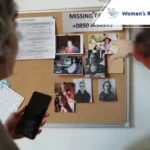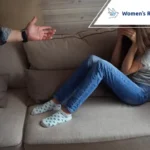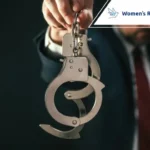Are You Being Trafficked?
Signs of Sex Trafficking
Sex trafficking is a horrific crime that takes advantage of some of the most vulnerable people in our society. The victims are often young women and girls who are lured into sex trafficking with promises of a better life or false promises of love and affection. Once they are trapped, they are forced to provide sexual services for their traffickers’ profit. This can happen anywhere in the world, and it’s important to be aware of the signs so you can help someone if they’re being trafficked.
What is Human Trafficking?
Human trafficking is a heinous crime that relies on force, fraud, or coercion to exploit victims for labor or sex. Every year, millions of people are trafficked across the globe – including right here in the United States. Anyone can be a victim regardless of age, race, gender, or nationality. Traffickers might use the following methods to lure victims into trafficking situations:
- Violence
- Manipulation
- False promises of well-paying jobs
Since human trafficking is notoriously a hidden crime, victims often don’t get the help they require because of language barriers, fear of their traffickers, or law enforcement. People who become easy targets for traffickers are usually exploited due to:
- psychological or emotional vulnerability
- economic hardship
- lack of a social safety net
- natural disasters
- political instability
Many victims of trafficking carry such psychological trauma that they may not identify themselves as victims or ask for help, even when it is happening in plain sight.
What is Sex Trafficking?
Sex trafficking is a type of human trafficking that involves the recruitment, transportation, or harboring of people for the purpose of sexual exploitation. This can happen through force, fraud, or coercion and often affects vulnerable populations such as women and children. In fact, 71% of human trafficking victims are female and 29% are children.
Sex traffickers might use the following methods to lure victims into trafficking situations:
- Pretending to offer a legitimate job
- Fraudulent marriage proposals
- Luring victims with the promise of adventure or travel
- Offering protection or love
These methods are often used to exploit victims who are looking for a way out of their current situation.
The trafficker might promise the victim a better life, but instead, the victim is forced into a life of sexual abuse and modern-day slavery.
Who Are the Victims of Sex Trafficking?
Anyone can be a victim of sex trafficking regardless of age, race, gender, or nationality. However, there are some groups of people who are more vulnerable to recruitment by traffickers. These potential trafficking victims can include:
Women and girls
Studies have shown that women and girls make up the vast majority of sex trafficking victims worldwide. In fact, 71% of human trafficking victims are female. This is likely due to the fact that women and girls often face more obstacles than men and boys when it comes to education, economic empowerment, and social equality.
LGBTQ+ individuals
LGBTQ+ individuals are also at a higher risk of being trafficked due to discrimination and violence. This population is often forced into the underground economy, where they are more vulnerable to exploitation.
Children
Children are especially vulnerable to sex trafficking because they are less likely to have stable family relationships, economic opportunities, or social networks. They are also more likely to be victims of abuse and violence.
Runaway youth
Runaway and homeless youth are also at a higher risk of being trafficked and placed in inhumane conditions. This abuse of vulnerability happens because youth at risk often lack stable family relationships, economic opportunities, or social networks.
Undocumented immigrants
Undocumented immigrants are also more vulnerable to becoming sex trafficking victims due to their lack of legal status. This makes them less likely to report trafficking crimes or seek help from law enforcement.

Who Are the Traffickers?
Human traffickers can be anyone – men, women, or even children. They come from all walks of life and can be strangers, friends, family members, or intimate partners. In many cases, traffickers are part of a larger criminal network. However, they can also operate independently. The range is so diverse that it can include:
- Pimps
- Gang members
- Business owners
- Labor brokers
- Employers
- Family members or friends
- Intimate partners (or sexual partners)

Traffickers might use violence, manipulation, or false promises to lure victims into trafficking situations. They might also exploit victims who are vulnerable due to psychological or emotional vulnerabilities, economic hardship, or a lack of a social safety net.
In the U.S., sex trafficking happens a lot in hotels, motels, and similar commercial establishments. This is because traffickers can easily move their victims around to different locations and keep them under control. Sadly, some of these establishments are complicit in sex trafficking by turning a blind eye to what is happening or even participating in it. Sex trafficking can also happen in private homes, on the street, or even in online spaces.
Am I Being Trafficked?
You might not realize that you or someone you know is being trafficked. This is because traffickers often use manipulation, coercion, and threats to control their victims. The signs of abuse might be immediately apparent. Traffickers might also exploit victims who are in vulnerable situations to live a life of involuntary servitude. However, there are some signs of trafficking that can help you identify if someone is being victimized.
Signs of a potential trafficking situation include:
Isolation
The victim is not allowed to socialize or have contact with family and friends. They might also be moved to unfamiliar locations, away from their support system, to prevent any social interaction.
Lack of control
The victim has no control over their own life, including what they do, where they go, or who they see. Their identity documents might also be kept from them or taken away — even their cell phone and other possible methods of communicating with others.
Threats
The victim is threatened with violence, deportation, or harm to their family if they try to leave. They might also be told that no one will believe them if they go to the authorities.
Forced labor or services
The victim is forced to work long hours for little to no pay. They might also be forced to engage in commercial sex acts.
Signs of physical abuse
The victim has bruises or other signs of physical injuries. They might also have sexually transmitted infections or become pregnant as a result of rape or sexual assault.
Other signs
The victim might show signs of mental health problems and psychological abuse, such as anxiety, depression, or post-traumatic stress disorder. They might also have trouble sleeping or eating.
Reach out for help if you see signs of sex trafficking or any indicators of trafficking. There are many organizations that provide assistance to trafficking victims, such as the National Human Trafficking Hotline, the Department of Homeland Security, and the Women’s Rights Group. You can also alert law enforcement officers in your area.
If you are in immediate danger, call 911.
If you are a victim of sex trafficking, you might be eligible for compensation. Hotels, motels, private homes, and commercial establishments that have turned a blind eye to trafficking happening on their premises can be held liable for allowing such crimes to happen on their turf. Filing a civil lawsuit can help you get the compensation you deserve and hold the responsible parties accountable.
- Financial claims may be made for:
- Medical expenses
- Therapy and counseling costs
- Lost wages
- Pain and suffering
- Punitive damages
While filing for compensation will not at all undo the trauma you have experienced, it can help you recover more than enough financial resources to start over and rebuild your life. Many sex trafficking lawsuits are worth millions of dollars. You should not have to face your trafficker alone and you certainly should not have to pay for the damages they have caused you. With the help of a sex trafficking lawyer who is an expert in human trafficking laws, victims of sexual exploitation can get the justice and closure they deserve.
You Are Safe Here
If you or someone you know has been a victim of sex trafficking, we can help. The Women’s Rights Group is a national organization that helps individuals who have been victims of sexual violence in commercial spaces. Our anti-trafficking services have helped many women get the compensation they deserve for them to rebuild their lives.
You can contact us today for a free, confidential consultation. Our team of experienced lawyers will review your case and help you understand your legal options. We will fight for you every step of the way to get the justice and money you deserve.







